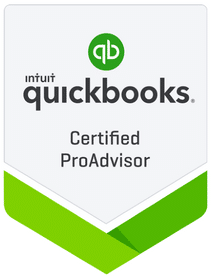- Patrick Roney
- (877) 503-8607
Follow Us :
Follow Us :
Proledge
June 13, 2010

Wouldn’t it be nice to have a one-stop-shop for all your financial needs? Bookkeeping services, taxes, payroll, etc… Some companies can provide such a bundle of services (e.g. larger CPA firms), but they either are wildly expensive or are doing a poor job on some of these dimensions. If you are a small business, you have pretty much no option other than to hire separate entities for each of the functions: a bookkeeper, a CPA (or tax adviser) and a payroll provider. It is much more cost effective and it allows you to pick the right expertise and the right fit for each function. You have to become the financial quarterback. You’re the one who has to clearly define who does what and make sure that the parties communicate well among each other.
However, this doesn’t mean that you need to become an expert on all these issues. Far from that! If you hire the proper professionals, they’ll advise you on best practices and they will know the touch-points between each other. Let’s expand on this a little bit.
At a high level, the role allocation is pretty straight forward:
The challenge is to make sure that the information flows between these 3 parties correctly. In an ideal world, here are the dependencies:
Unfortunately, it’s never that simple. For instance:
Depending on how comfortable you are with accounting and payroll, it’s up to you to decide if you need to be the middle person for all communication between your providers or if you should let your providers talk to each other. There is no right or wrong on this. Just make sure that the information flows between them as effectively as possible.


Fill out the form below to sign up to our Blog Newsletter and we’ll drop you a line when new articles come up.
Bookkeepers.
Professional. Affordable.
ProLedge is a bookkeeping services firm.
Copyright © 2024 All rights reserved.
Hello. Can we help you?